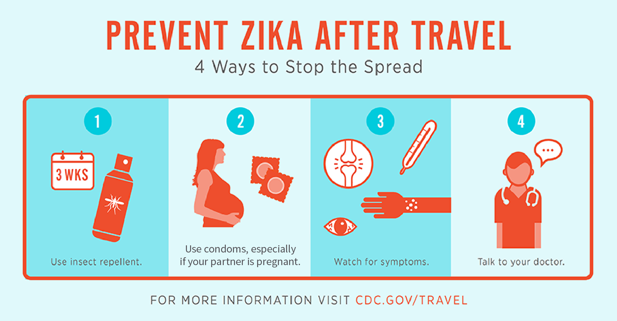Understand How Infectious Diseases Spread
Knowing how infectious diseases spread will help protect you from getting sick while traveling and decrease the likelihood that you will spread illness to other travelers. The following information will empower you to be a more responsible traveler so that you can protect your health and the health of others.Two main types of illnesses that you may be able to spread easily to another person are respiratory illnesses (those that affect your breathing) and foodborne illnesses (those spread by eating, drinking or putting something in your mouth that has been contaminated).
Preventing the Spread of Illness to Others
- Notify your doctor immediately if you become ill during or after traveling.
- Wash your hands often with soap and water. Wash after you use the bathroom, sneeze or cough, and before preparing food, eating or touching anything that you might put in your mouth. (Hand washing is best, but hand sanitizer with alcohol may be used if no running water is available.)
- Cover your mouth and nose when you cough or sneeze.
- Stay in your room if you become ill.
- Throw away used tissues. (Place them in a trash can or the sick bag when on a flight.)
- If you are ill, do not prepare food for others. Stay home from work if your job is in child care, health care, or food service.
- Do not share food, drink, or utensils with others.
Respiratory Illnesses
Illnesses, such as the flu, spread from person to person when droplets from the cough or sneeze of an infected person move through the air and get into the mouth or nose of people nearby. The germs in these droplets can often also live on surfaces, such as desks or doorknobs, for two hours or longer and can spread when people touch these surfaces and then touch their eyes, mouth, and nose. The most common symptoms are coughing, sneezing, and runny nose.
Avoid Becoming Infected with a Respiratory Illness
- Wash your hands often with soap and water.
- Wash after you use the bathroom, sneeze or cough, and before preparing food, eating or touching anything that you might put in your mouth.
- Hand washing is best, but hand sanitizer with alcohol may be used if no running water is available.
Foodborne Illnesses
You will encounter many different foods and food preparations when visiting other countries. Unfortunately, these new foods may also come with a virus, bacteria or parasite. As a result, foodborne illnesses are common among travelers. The most common symptoms are nausea, vomiting, and diarrhea.
Furthermore, hygiene and safety practices for food and water may be different in other countries than what you are used to at home. You can get a foodborne illness from eating or drinking contaminated food and water, even if the food and water looks and tastes fine.
Avoid Becoming Infected with a Foodborne Illness
- Eat foods that are fully cooked and served hot.
- Eat only fruits and vegetables that you can wash and peel yourself.
- Eat and drink only dairy products that have been pasteurized.
- Do not eat food from street vendors.
- Drink beverages that have been bottled or sealed (water, carbonated drinks or sports drinks).
- Do not put ice in drinks.
- Do not brush your teeth with tap water.
- Check country-specific tips for your destination.
Prevent Zika After Travel
Protect yourself from mosquito bites.
- Even if you do not feel sick, travelers returning to the United States from an area with risk of Zika should take steps to prevent mosquito bites for 3 weeks so they do not spread Zika to mosquitoes that could spread the virus to other people.
- Protect yourself and your family from mosquito bites by using EPA-registered insect repellants, wearing long-sleeved shirts and long pants, and controlling mosquitoes inside and outside your home.
Protect yourself during sex.
- Use condoms or don’t have sex to avoid getting or spreading Zika during sex if you or your partner has traveled to an area with risk of Zika.
- The amount of time you need to take these steps depends on whether you or your partner has symptoms and whether you or your partner are pregnant or trying to get pregnant. For specific guidelines, see Protect Yourself During Sex.
Watch for symptoms.
- Many people infected with Zika virus won’t have symptoms or will only have mild symptoms. The most common symptoms of Zika are fever, rash, headache, joint pain, conjunctivitis, and muscle pain.
- Zika is usually mild with symptoms lasting for several days to a week.
See a doctor or healthcare professional if you have symptoms of Zika.
- If you have symptoms of Zika after travel to an area with risk of Zika, talk to your doctor and tell him or her about your travel.
- If you’re pregnant, talk to your doctor after travel to an area with risk of Zika, even if you don’t feel sick.
- If you’re thinking about trying to become pregnant after travel to an area with risk of Zika, talk to your doctor when you return and see specific recommendations for couples trying to become pregnant.

